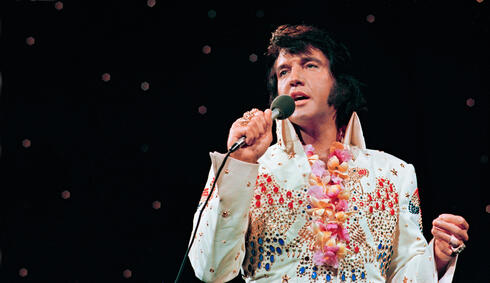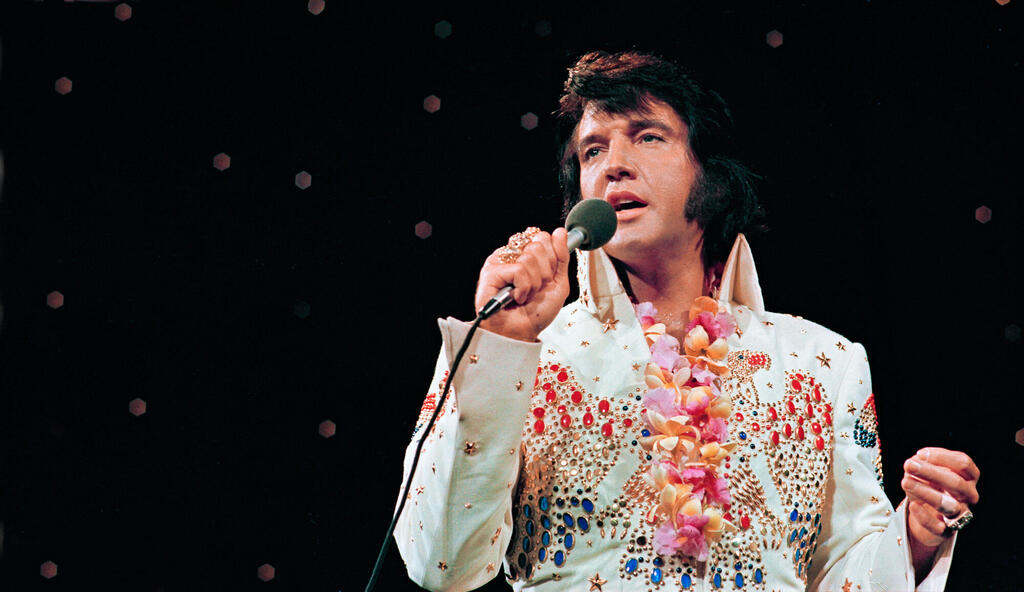
The king and AI: Elvis vs copyright infringement
The growing sophistication of AI tools raises concerns among artists and musicians that their work and voice can be used without permission. In the US state of Tennessee, a law will go into effect in July that will for the first time protect against exploitative use of such technology
In an act of unusual regulatory activism, Tennessee, the birthplace of country music, recently passed the "Elvis Law" and was the first in the world to protect artists from the exploitative use of generative artificial intelligence tools. The legislation, which is expected to take effect on July 1, is designed to protect songwriters, performers and other professionals in the local music industry, and replaces an existing law from 1984 that was originally created to deal with the abuse of the iconic singer Elvis Presley.
In doing so, Tennessee becomes the first state in the United States to act to protect artists, their copyrights and their very voices from manipulation and artificial intelligence tools when these are used without permission or consent. According to the law, a person or company will not be entitled to reproduce the voice of people or others without their permission, for any use whatsoever. "We employ more people in the music industry than any other state," Tennessee Gov. Bill Lee said shortly after signing the bill into law. "Artists have intellectual property. They have a uniqueness that is theirs and theirs alone, certainly not that of artificial intelligence." The law (Ensuring Likeness Voice and Image Security or ELVIS) even creates a civil procedure against anyone who reproduces, uses or publishes a person's voice without their permission.
1. Who’s singing? It’s not Drake and The Weeknd
The law is called the "Elvis Law" for a reason. The first and most substantial challenge surrounding the prohibited use of a person's likeness occurred after the famous singer's death in 1977, when many, including various advertisers, began to use his likeness and name continuously on the assumption that as soon as a celebrity dies, his likeness becomes public domain and is allowed to be used. This caused a great uproar in Tennessee and in 1984 the state enacted the "Personal Rights Protection Act". The law stated that personal rights do not end with death and can be transferred. It noted that individual rights constitute property rights and can be assigned and licensed, and do not expire upon the death of the protected person.
The law protected the name, image and likeness of the artist, and did not obviously specifically refer to artificial intelligence products. With these, today users can create fake works in the image and voice of others, what is today known as "Deep Fake". The increasing sophistication of artificial intelligence tools, especially in the last two years, is a reason for growing concern especially among creators, whether they are musicians or screenwriters, or illustrators, writers or journalists. These see tech companies using their original works to train language models, who then produce new outputs in their own distinct style, sometimes with the sole intention of imitating them. Against the background of these challenges to their work, the Hollywood Screen Actors Guild (SAG) has been fighting for the past year with the major production companies, so that they guarantee that original works made by humans will continue to be recognized and rewarded as such.
In music, additional concerns arose especially after in April a song called "Heart on My Sleeve", in the voice of the artists Drake and The Weeknd, became viral on TikTok, YouTube and other platforms. The creator of the song used their voice, without permission, using an artificial intelligence tool. After this happened, Universal Music, which represents the two, appealed to Spotify, Apple Music and others with an urgent request to block any training of artificial intelligence models on the lyrics, songs and melodies of the artists it represents. At that time, its stock collapsed by 20%, due to the fear that technology would have a deep and negative impact on its activities.
It used to be no more than a gimmick to use the voices of living or dead artists. In Waze, for example, it was possible to activate the navigation services so that the instructions are given in the voice of the actor Arnold Schwarzenegger. The heavy Austrian accent has been a regular feature on the platform since 2015, but even then Waze did so through an agreement with Schwarzenegger. What Waze knew a decade ago, companies like OpenAI managed to forget - consent is a key to longevity.
Artists have good reason to worry. Not only do leading companies like OpenAI do nothing to promote their products in a way that protects copyright, those same companies also work tirelessly to encourage large companies to integrate their products where the greatest danger to intellectual property exists. Thus, for example, it was revealed that last week OpenAI executives met with Hollywood studios and talent agencies to create partnerships in the entertainment industry and encourage filmmakers to incorporate the new text-to-video generator Sora in their work. The fact that the generator has not yet been launched for wide use, and that OpenAI is mired in copyright infringement lawsuits regarding its text (ChatGPT) and image (DALL-E-2) generators, does not matter. Better to apologize and pay than stop to get consent.
2. Artists are forced to protect themselves
Other than Tennessee, legislators as usual are behind. The only federal legislation in the United States today that attempts to deal with the current challenges was only introduced in late January, and even then only after Universal itself pushed for it. The No AI Fraud Act was introduced as bipartisan legislation and aims to protect the voice of artists under federal intellectual property law. Don't hold your breath on the law being passed soon. Until then, artists, production companies and various ventures are forced to protect themselves. Companies like Spawning AI, for example, have built tools for artists to report and request on their behalf not to be included in model training databases.
According to the company, thousands of artists have already used the tool and it has collected cancellation requests for 80 million works. Organizations like The New York Times have already sued OpenAI, as have individual artists like Sarah Silverman, who filed personal and representative lawsuits. Last October, Universal itself sued the artificial intelligence company Anthropic, which built the Claude model, for systematic and extensive infringement of copyrighted material. Universal accused the company of extracting vast amounts of text from the Internet by artists it represents, including Beyoncé, the Rolling Stones and the Beach Boys, to train Claude, and asked the court to block Anthropic's use of the material and force the company to implement "safeguards'' against duplicating the words. The lawsuit was filed, of course, in Tennessee.
Preserving artist ownership is also necessary to preserve creative industries. Generative artificial intelligence, with its ability to create content on a huge scale, not only harms the work of artists by copying them in order to compete with them, but it also allows anyone to outsource the entire creative process - from writing the song, composing it to singing. Technology has always shaped the music industry, from the invention of the gramophone, to the record, CD and streaming music, we are left only to look for the beauty. No technology will be as good at producing it as we are.














